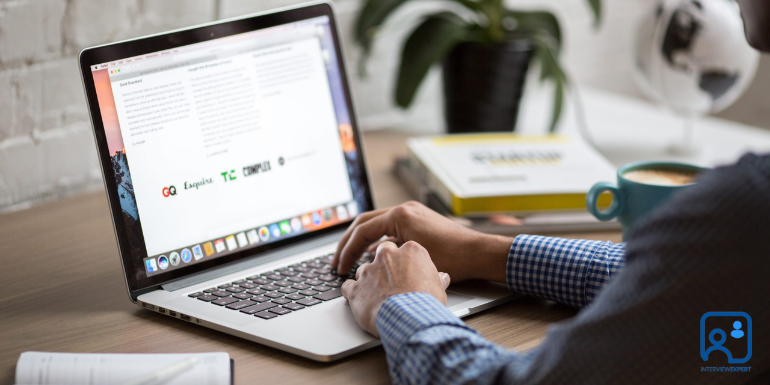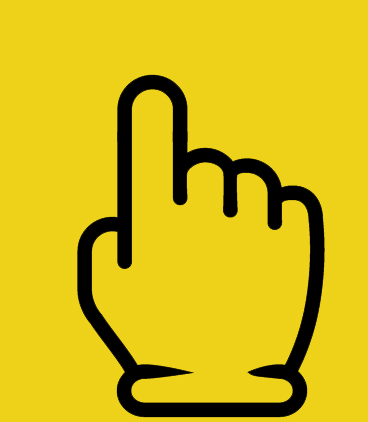
The job search process can be challenging, and this is especially true when it comes to sending a thank-you note following an interview. Although it's normal to be unsure about what to say and when to say it, know that sending a follow-up email is an essential step in the hiring process. It demonstrates to the interviewer your continued interest in the role, highlights your qualifications, and may keep your name in front of your mind.
Timing is crucial, though. Sending the follow-up email too quickly could make you appear overly eager or even desperate. Sending it too late, on the other hand, can result in the interviewer making a judgment already or losing interest in your application. Now you might be thinking what should I say in a follow up email after an interview?
This article will examine the finer points of the follow-up email and provide you with advice on how to improve your chances of getting the job of your dreams. Keep in mind that timing is crucial, so let us begin!
Why wait for the right time after appearing for the job interview?
How your message is received greatly depends on the timing of your follow-up email. If you act too soon, you could come off as aggressive or desperate. On the other side, putting off sending an interview follow up email for too long may hurt your chances of landing a job. The interviewer might assume that you are not serious about the job as well as have lost interest you wait too long. They might also think you have already secured a new position, which would make them turn to another applicant.
What is the sweet spot, then?
The majority of professionals advise sending a follow-up email 24 to 48 hours after the interview. This period finds a good mix of demonstrating enthusiasm and interest in the position without being overbearing or forceful.
It is also crucial to consider the recruiting procedure of the organization you've applied to. You might wish to send your follow-up email as soon as possible if they have a short deadline for reaching a decision. On the other hand, it would be wise to hold off on sending your follow-up email for a few extra days if the hiring process is anticipated to take longer.
Finally, waiting for the ideal moment allows you to create a thoughtful and unique follow-up email. This is your chance to highlight your qualifications, express gratitude for the opportunity to interview and restate your interest in the position. You can convey to the interviewer that you are professional, considerate, and excited about the position by taking the time to construct properly your email.
It's crucial to wait until the proper moment to send a follow up email after interview in order to avoid coming across as pushy or overly eager, give the interviewer time to complete their task, and give yourself the chance to write a thoughtful message that is unique to you.
Tips for follow up email after interview
The following suggestions can assist you in sending a follow-up email that makes a good impression on the interviewer:
Customize you Mail
Personalizing your message is one of the most crucial things to remember when writing a follow-up email. Begin by addressing the interviewer by name and expressing gratitude for their cooperation. This demonstrates your appreciation for their work and your commitment to the position. Use of generic or impersonal salutations, such as "Dear Sir/Madam" or "To Whom It May Concern," might make your email appear less sincere and decrease the likelihood that it will be read.
Utilize your experience
It is an important part of the follow up email after interview. Mention certain subjects or experiences that were covered during the interview in the email's body. This demonstrates your active participation in the interview and your sincere interest in the job. You might, for instance, describe a project the organization is working on that interests you a lot or a skill you possess that might be beneficial to the position. This shows that you have given the interview and the business more thought than you initially gave them credit for.
Mention Your Qualifications
Make sure to restate your qualities for the position in your follow-up email. Any pertinent abilities, accomplishments, or experiences that you neglected to mention during the interview should be highlighted. Avoid just listing off your qualifications without context and make sure to connect them to the job criteria and company culture. By doing this, you'll be able to demonstrate to the interviewer that you gave the demands of the organization some thought.
Express gratitude
It is crucial to thank the interviewer for the opportunity in your follow up email after interview. In addition to restating your qualifications. Inform the interviewer that you value the time and effort they invested in the interview and that you are looking forward to the chance to work with them. This can help you establish a good rapport with the interviewer and show your excitement for the job.
Proofread
It is important in your follow up interview email to make sure to examine thoroughly your follow-up email for grammatical and spelling issues before sending it. An email that is well written and free of mistakes demonstrates your attention to detail and professionalism. Additionally, it guarantees that your message is understandable and straightforward. Before sending your email, take the time to read it aloud or have a friend or family member check it.
If the interviewer does not respond to your follow-up email in a timely manner, it's crucial to take action. It is important to follow only up once, though. Avoid phoning the interviewer frequently or sending numerous follow-up emails as this may come across as pushy or desperate.
Conclusion On Tips To Compose Follow-up Mail After Interview
After an interview, sending a follow-up email can be an effective method to show your professionalism, zeal, and interest in the position. You can send a follow-up email that makes a good impression on the interviewer and improves your chances of getting the job by personalizing your message, making specific references, restating your qualifications, expressing gratitude, keeping it brief, carefully proofreading, following up only once, using a professional tone, sending your email during business hours, and tailoring your email for each interviewer. Do not wait too long to send your follow-up email following an interview because timing is crucial.
Hope you like this article on Tips To Compose Follow-up Mail After Interview. If you have any queries and suggestions, you can reach us at info@interview-expert.com.
For more guidance on interview preparation, contact Interview Expert.

